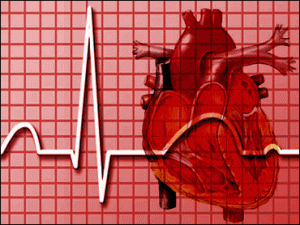 A recent UT Southwestern Medical Center study found that estrogen regulates energy expenditure, appetite and body weight, while insufficient estrogen receptors in specific parts of the brain may lead to obesity.
A recent UT Southwestern Medical Center study found that estrogen regulates energy expenditure, appetite and body weight, while insufficient estrogen receptors in specific parts of the brain may lead to obesity.
“Estrogen has a profound effect on metabolism,” said Dr. Deborah Clegg, associate professor of internal medicine and senior author of the study published Oct. 5 in Cell Metabolism. “We hadn’t previously thought of sex hormones as being critical regulators of food intake and body weight.”
The mouse study is the first to show that estrogen, acting through two hypothalamic neural centers in the brain, keeps female body weight in check by regulating hunger and energy expenditure. Female mice lacking estrogen receptor alpha – a molecule that sends estrogen signals to neurons – in those parts of the brain became obese and developed related diseases, such as diabetes and heart disease.
Similar results were not seen in male mice, although researchers suspect other unknown estrogen receptor sites in the brain play a similar role in regulating metabolism for males as well. Estrogen receptors are located throughout the body, but researchers found two specific populations of estrogen receptors that appear to regulate energy balance for female mice.
The findings are potentially important for millions of postmenopausal women, many of whom have decided against hormonal replacement therapy. The study could lead to new hormonal replacement therapies in which estrogen is delivered to specific parts of the brain that regulate body weight, thereby avoiding the risks associated with full-body estrogen delivery, such as breast cancer and stroke.
Doctors stopped routinely recommending long-term estrogen therapy for menopausal women in 2002 when a Women’s Health Initiative study showed the hormone did not prevent heart disease in women who already were at increased risk.
“The role of estrogen in postmenopausal women continues to remain uncertain,” Dr. Clegg said. “Current research is focused on the timing and the type of estrogen supplementation that would be most beneficial to women. Our findings further support a role for estrogens in regulating body weight and energy expenditure, suggesting a benefit of estrogen supplementation in postmenopausal women.”
Source: UT Southwestern Medical Center

 Recently, I attended the meeting of the North American Menopause Society (NAMS) in Washington DC along with 1500 other health professionals. The bottom line: Estrogen is not the devil, but it is not the panacea for all things female!
Recently, I attended the meeting of the North American Menopause Society (NAMS) in Washington DC along with 1500 other health professionals. The bottom line: Estrogen is not the devil, but it is not the panacea for all things female! Menopause has little to no impact on whether women become more susceptible to diabetes, according to a one-of-a-kind study.
Menopause has little to no impact on whether women become more susceptible to diabetes, according to a one-of-a-kind study. Soy supplements do not help women in menopause, according to the findings of a two-year, $3 million study conducted at the Miller School of Medicine’s Osteoporosis Center. The study was funded by the National Institutes of Health to determine if the widely popular product could preserve bone health and ease symptoms in the first years of menopause. The results show that, contrary to popular belief, soy isoflavone supplements neither prevent bone loss nor reduce menopausal symptoms.
Soy supplements do not help women in menopause, according to the findings of a two-year, $3 million study conducted at the Miller School of Medicine’s Osteoporosis Center. The study was funded by the National Institutes of Health to determine if the widely popular product could preserve bone health and ease symptoms in the first years of menopause. The results show that, contrary to popular belief, soy isoflavone supplements neither prevent bone loss nor reduce menopausal symptoms. The sex hormone estrogen could help protect women from cardiovascular disease by keeping the body's immune system in check, new research from Queen Mary, University of London has revealed.
The sex hormone estrogen could help protect women from cardiovascular disease by keeping the body's immune system in check, new research from Queen Mary, University of London has revealed. Flaxseed provides no benefit in easing
Flaxseed provides no benefit in easing 
 Green tea has become an international mainstay beyond the Orient. Many observational studies have shown that green tea is full of potent polyphenols (an antioxidant) that lower the risk of several chronic degenerative diseases such as heart disease and osteoporosis. A recent study from Dr. Chwan-Li (Leslie) Shen, an associate professor and a researcher at the Laura W. Bush Institute for Women's Health at Texas Tech University Health Sciences Center looked at the mechanism behind this correlation and believes it may have to do with lowering chronic levels of inflammation.
Green tea has become an international mainstay beyond the Orient. Many observational studies have shown that green tea is full of potent polyphenols (an antioxidant) that lower the risk of several chronic degenerative diseases such as heart disease and osteoporosis. A recent study from Dr. Chwan-Li (Leslie) Shen, an associate professor and a researcher at the Laura W. Bush Institute for Women's Health at Texas Tech University Health Sciences Center looked at the mechanism behind this correlation and believes it may have to do with lowering chronic levels of inflammation. groups:
groups: The results of the first study to examine the relationship between menopausal symptoms and breast cancer risk are available online ahead of the February print issue of
The results of the first study to examine the relationship between menopausal symptoms and breast cancer risk are available online ahead of the February print issue of  Women, on average, live one-third of their lives post menopause. Some women find menopause an easy transition. Other women are chronically bothered by persistent hot flashes and night sweats that impact their quality of life. For years, hormone therapy was the answer but it has been shadowed by controversy as researchers learn more about estrogen and its long term impact on the body. The
Women, on average, live one-third of their lives post menopause. Some women find menopause an easy transition. Other women are chronically bothered by persistent hot flashes and night sweats that impact their quality of life. For years, hormone therapy was the answer but it has been shadowed by controversy as researchers learn more about estrogen and its long term impact on the body. The  Study finds women who suffer from hot flashes when they begin menopause are at lower risk for cardiovascular events
Study finds women who suffer from hot flashes when they begin menopause are at lower risk for cardiovascular events